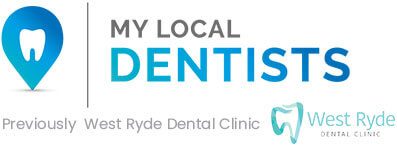
There is a common question among patients “why do my teeth hurt suddenly?”. Sensitive teeth can be extremely uncomfortable, and toothache can affect one or several teeth.
There are several factors that can cause sudden dental pain. In this article, we will discuss all of the potential causes of sudden and extensive tooth pain, and we will also outline when is the right time to seek medical or dental treatment.
Gum Disease
Your gums act as a barrier for your teeth’s nerves. However, when they start to recede, they leave the nerves exposed and unprotected, which then leads to tooth sensitivity and pain. Receding gums can be a sign of gum disease.
There are two stages of gum disease: gingivitis and periodontitis. Gingivitis is a mild form of gum disease that affects the outer layers of the gums, leading to pain and swelling. If left untreated, it can quickly progress to periodontitis, which targets the inner layers of the gum tissue and leads to tooth decay. Some potential signs and symptoms of periodontitis include:
- Toothache and sensitivity
- Bleeding gums
- Gum recession
- Loose teeth
- Bad breath
Treatment
For periodontal disease, practising good oral hygiene and attending regular dental cleanings helps reduce the number of bacteria in your mouth that causes gum disease. Your dentist may recommend professional cleaning or scaling to remove plaque buildup.
Tooth Decay (Cavities)
Another potential cause is tooth decay. Tooth decay is caused by bacteria that erode away the enamel on your teeth. Untreated cavities can extend deeper into the tooth enamel and possibly into the tooth’s pulp or nerve.
Treatment
Cavities can be treated with fillings or crowns. In some cases, it may need a root canal treatment.
Infection or Abscess
Tooth infections are another possible reason for the pain in your teeth. Untreated cavities can lead to abscesses. That pocket of infection comes from inside the tooth or deep inside the gum tissue. Here are some symptoms of an abscess:
- Red or swollen gums
- Sudden or sharp pain in the gums, teeth, or jaw
- Pain upon biting or chewing
- A swollen face or cheek
- A fever
Treatment
To clear an abscess infection, you may need antibiotics, and the pus may need to be drained.
Weak Tooth Enamel
Worn tooth enamel is another cause of pain. Enamel is the outer layer of your teeth that protects them from damage. If it’s worn down or weakened, it can become sensitive to hot and cold temperatures, as well as acidic foods and drinks.
Treatment
Treatment for weak enamel can involve bonding, crowns, or fillings to restore the tooth structure.
Teeth Grinding
Tooth grinding or clenching teeth can also cause toothache. This condition is called bruxism, and it occurs when you clench or grind your teeth unconsciously, usually during sleep. This can lead to a lot of wear and tear on the enamel of your teeth, making them more prone to pain.
Treatment
Treatment for bruxism can comprise special mouthguards or medications.
Temporomandibular joint syndrome
Temporomandibular joint (TMJ) syndrome is another potential cause of toothache. TMJ syndrome is a condition that affects the jaw joint and can lead to pain in all your teeth, as well as facial tenderness and headaches.
Treatment
Treatment for TMJ syndrome can involve physical therapy and medications.
 Crowded Teeth and Malocclusion
Crowded Teeth and Malocclusion
Contrary to popular belief, adults can experience temporary mouth pain from teething as well.
For example, if your wisdom teeth were coming in or you have a crowded mouth, your teeth may realign from time to time, causing discomfort. Your dentist can assess and recommend orthodontic treatment if needed.
Treatment
This pain can generally be lessened by taking ibuprofen or naproxen.
Conclusion
There are many potential causes of toothache. However, when left untreated, certain dental issues can worsen over time and cause even more pain and discomfort. It’s important to visit your dentist as the treatment for your chronic tooth sensitivity will vary depending on what is causing it.
Make an Appointment with My Local Dentists
If you are experiencing any kind of prolonged toothache, our expert dental team can diagnose the source of the problem and provide appropriate treatment. Early diagnosis and prompt treatment will help relieve discomfort and prevent further damage to your teeth.
If you have any questions or concerns, please do not hesitate to contact us on (02) 9809 7000. With five conveniently located dental clinics, we’re here to help!
References
Maxillary sinus disease: diagnosis and treatment
https://www.nature.com/articles/sj.bdj.2011.47
Impact of malocclusion and common oral diseases on oral health-related quality of life in young adults
https://www.sciencedirect.com/science/article/abs/pii/S0889540615000396
Temporomandibular Syndrome
https://www.ncbi.nlm.nih.gov/books/NBK551612/
Teeth grinding (bruxism)
https://www.nhs.uk/conditions/teeth-grinding/
Periodontal Disease
https://www.cdc.gov/oralhealth/conditions/periodontal-disease.html
Sensitive Teeth
https://www.mouthhealthy.org/all-topics-a-z/sensitive-teeth/
Prevalence of Toothache and Associated Factors: A Population-Based Study in Southeast Iran
https://www.ncbi.nlm.nih.gov/pmc/articles/PMC3734515/#:~:text=A%20wide%20range%20of%20toothache,suffered%20from%20toothache%20%5B13%5D.
Gum Disease Information
https://www.perio.org/for-patients/gum-disease-information/
Tooth decay
https://www.nidcr.nih.gov/health-info/tooth-decay
